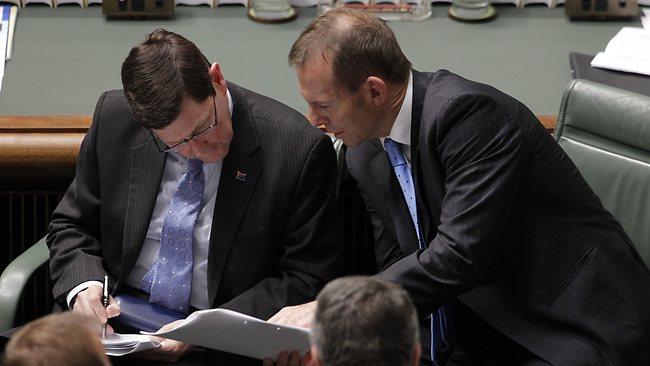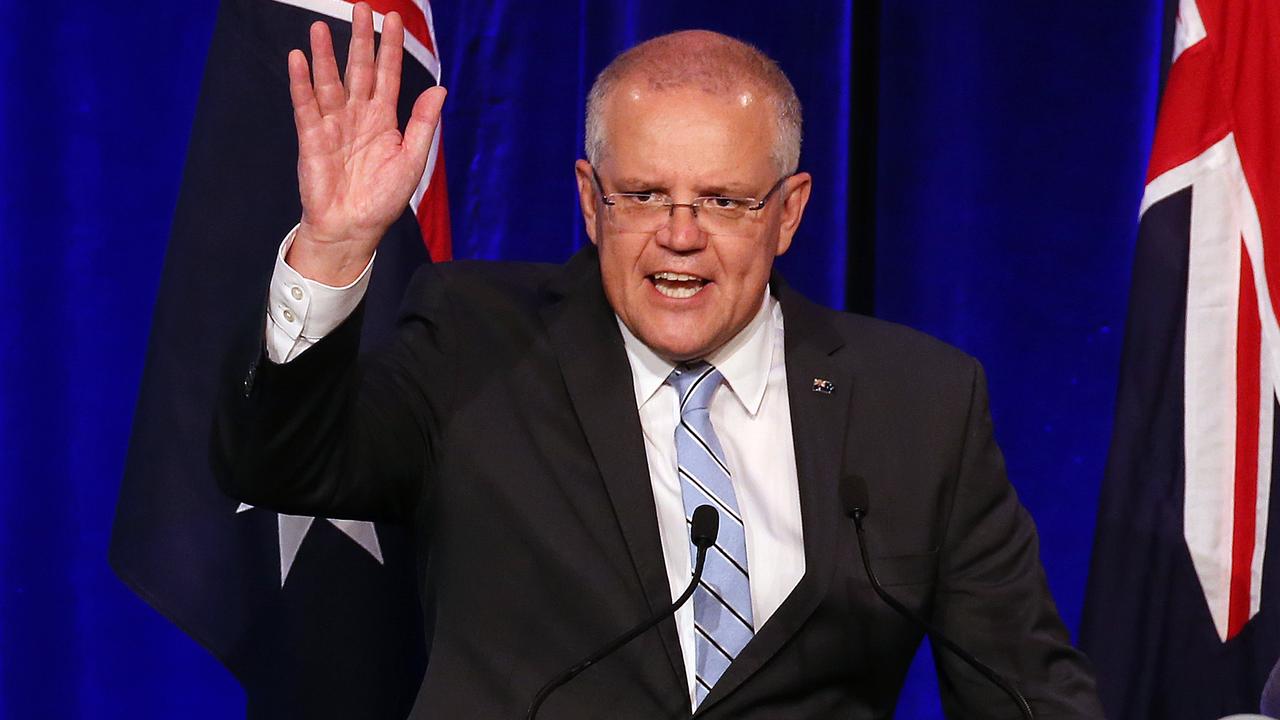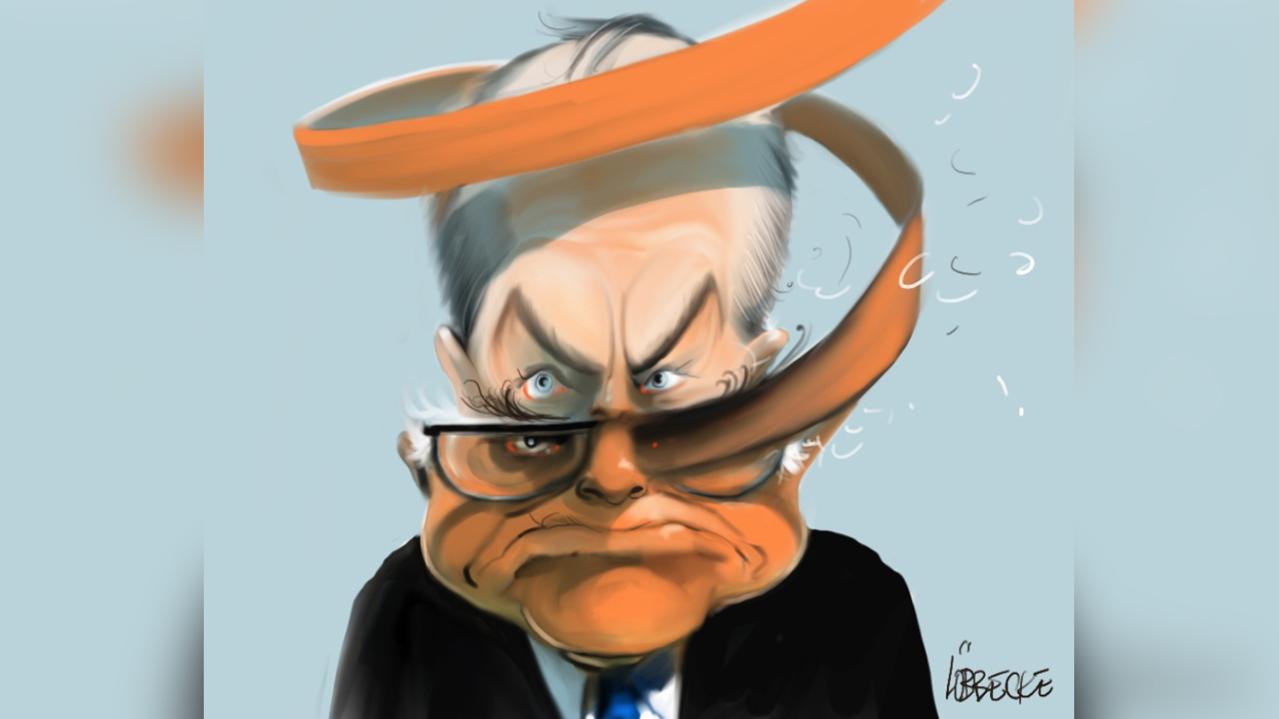
IN 1980 Victor Navasky published a book titled Naming Names. It was a comprehensive account of the Hollywood blacklist - entertainers alleged to have links to the communist movement - during the heady days of the Cold War.
Back then, naming names meant discrediting rivals. It's no different in politics today, even if the stakes aren't nearly as high. Politicians often background journalists about rivals, both on their own side of the parliament and in the ranks of their party opponents.
Which is why watching both main party leaders deny any knowledge of dirt units during the week was sickening. They must assume we are beyond stupid to believe they don't realise such practices go on.
But naming names isn't always easy and it isn't always the wrong thing to do either, especially when it involves identifying underperforming frontbenchers past their use-by date. Too often commentators lament the failure to make better use of certain MPs within the parliament, without highlighting exactly who needs to make way for that to happen. That's the harder task.
I thought it worth getting the ball rolling in this column. It's time to name names.
Liberal Party shadow ministers Kevin Andrews, Ian Macfarlane, David Johnston, Michael Ronaldson, Marise Payne, Bob Baldwin, Concetta Fierravanti-Wells, Stuart Robert and Sussan Ley - more than one-third of Liberal frontbenchers - are what you might call underperformers. If each and every one of them were demoted, the Coalition would hardly miss a beat.
Some observers add shadow finance minister Andrew Robb and the ever-present Bronwyn Bishop to that list, but I do not. Robb has a sound economic mind and Bishop, despite her age, was one of the better performing shadows on the hustings at the last election. Begrudgingly I'll concede that she has earned her place, though I'm not sure that Tony Abbott's commitment to move her into cabinet in government (assuming she retains the same portfolio) is in order.
Abbott may not reshuffle his line-up this side of the next election because he has no intention of upsetting the discipline that presently exists within Coalition ranks. He would also need to demote more people than he can promote because he is oversubscribed on his frontbench with a one-off exemption having been granted for a larger than usual pool of salary-drawing shadows.
But if Abbott wins the next election, to be an effective government he will need to recalibrate his line-up and do so dramatically, partly to ensure the best in the team are doing the heavy lifting, partly to avoid weak ministers undermining stability in government, and partly to appease the ambition of backbenchers and new parliamentary entrants already dismayed by the lack of merit going into frontbench selections.
Andrews as a minister presided over the Mohamed Haneef debacle and the failed selling of Work Choices. He is one of the "experienced" former Howard government ministers Abbott likes to refer to when batting away criticisms of his frontbench. But is the experience Andrews has really first-rate?
Macfarlane was lucky to survive as a junior minister way back in 2001. He was under the pump for GST discrepancies in his electoral back yard, but opposition attacks were completely overshadowed by the arrival of the MV Tampa. As Malcolm Turnbull's right-hand man trying to do a deal on the passing of the emissions trading scheme, he displayed true political ineptitude. Granted Macfarlane's understanding of the resources portfolio he now occupies is solid, but a new generation of Liberals demands he be cast aside, at least to a junior portfolio.
Johnston as the shadow defence spokesman is rarely seen, despite the significance of the portfolio he occupies. While he is a close ally of deputy leader Julie Bishop, he lacks the clout to give the portfolio the sounding in cabinet it deserves. Again a junior ministry at best is more befitting him.
Each of the above three frontbenchers are part of the shadow cabinet. The other names mentioned earlier are junior shadow ministers, but who could seriously suggest that any of them have added to the argument for a change of government? Junior ministers should be experienced ministers who can safely hold down a difficult portfolio or rising stars with the potential to move into cabinet.
None of Ronaldson, Payne, Baldwin, Fierravanti-Wells, Robert and Ley can claim ministerial experience during the Howard years. Equally, they are not up-and-comers. Payne was thought to be an up-and-coming moderate for years, but what has she done with her shadow portfolio of COAG? Ronaldson was a Turnbull lieutenant who has been on the slide ever since, certain to be demoted in government.
Baldwin has never been classified as an up-and-comer and his once marginal seat is no longer in need of the profile-lifting impact a frontbench position can offer. Not that Baldwin's profile is high anyway, which is a failing given his responsibilities for tourism. The sector is struggling in the two-speed economy and, as the shadow spokesman, he should have done more to identify ways of solving the crisis.
Robert may be well placed to take a hill, but war isn't politics and he has shown little sign of adding value beyond following orders. Fierravanti-Wells and Ley are not poor performers; they just don't justify taking up places more worthy alternatives should fill.
It's certainly not all about making a media impact. Bruce Billson, for example, isn't the best media performer but his backroom work on policy is first-rate and he understands small business. The names mentioned can't lay claim to similar value-adding.
Those identified need to be demoted if Abbott is going to make best use of the significant pool of talent making its way into the conservatives' parliamentary ranks.
John Howard's former chief of staff Arthur Sinodinos, former Optus executive Paul Fletcher, former Peter Costello and Howard senior advisers Kelly O'Dwyer and Jamie Briggs are all languishing on the backbench. The first two in particular simply must move on to the frontbench in government immediately.
Added to the list are likely new entrants: former West Australian treasurer Christian Porter and former Howard minister Mal Brough, both of whom are contesting preselection for the next election. And there are others, such as Nine Entertainment executive David Coleman.
Sono after the Coalition's 2007 election defeat, I was as critical as anyone about the lack of adequate renewal that had taken place within conservative ranks. Since that time, however, there has been a wave of new MPs entering the parliament, and more are on their way. But they need to be used.
Abbott will tell us that his first order of business if elected prime minister will be to repeal the carbon tax. Actually he needs to get his own house in order first.
Peter van Onselen is a Winthrop professor at the University of Western Australia.



